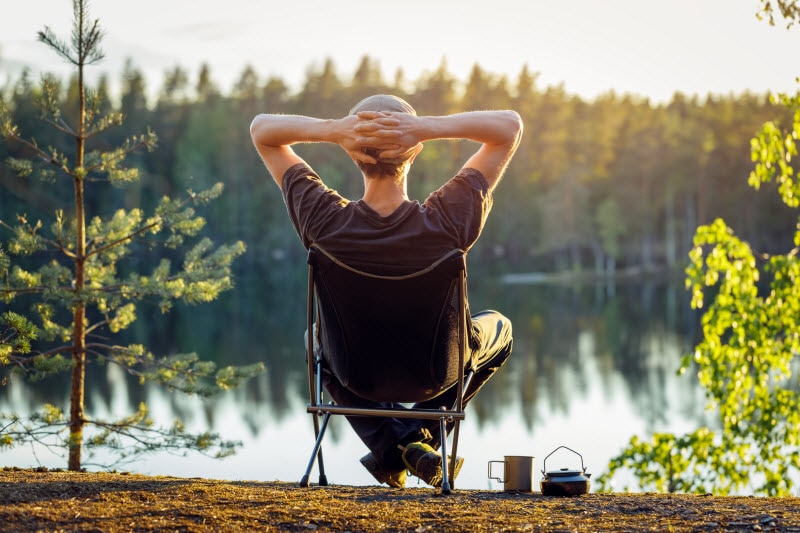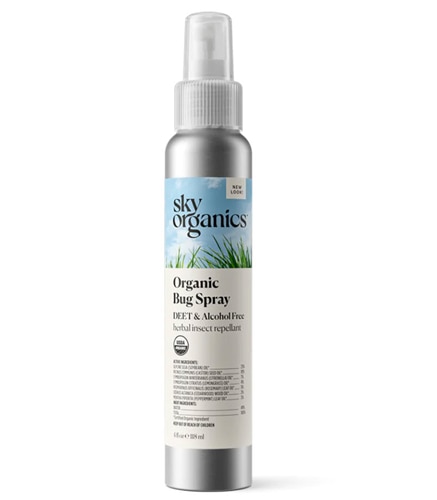[vc_row][vc_column][vc_column_text]As
summer kicks into high gear, millions of folks are ready to go camping. For most campers, a weekend or week in the wilderness will be a drama-free escape surrounded by nature.
But as experienced campers know, planning out your adventure in advance and making the right decisions at the campsite can make all the difference in ensuring your camping trip is a success.

"Those of us with hands-on experience know safe camping can actually be heavy on preparation details," says Michael Sawyer, operations director at
Ultimate Kilimanjaro, a Las Vegas-based company that specializes in assisting people who want to climb Mount Kilimanjaro.
So, before you head into the great outdoors, remember to put these 10 safety tips into practice.
10 Camping Safety Tips
1. Choose a safe spot for the campers in your group
There is an almost endless variety of camping opportunities available in the United States, but that doesn’t mean every campground is a good fit for every camper.
“Everyone experiences the outdoors differently,” says Janelle Smith, strategic communications lead for
Recreation.gov, the federal government’s centralized travel planning and reservation platform.
So, keep the wants and needs of the campers in your group in mind when choosing a place to camp. Younger campers in good shape might want to “rough it” in a tent in the middle of the wilderness, while older campers or those with health issues might prefer to set up camp in an area with access to restrooms and picnic tables.
2. Store food safely
The food that you bring to a campsite can spoil quickly if it is exposed to the elements. In addition, food that is left out in the open is an invitation to hungry animals.
Keep edibles tightly packed in waterproof containers and store them in insulated coolers. Also, remember to keep raw food separate from cooked food, and wash your hands thoroughly after handling raw meat and other foods.
3. Respect wildlife and keep animals at a safe distance
When you head into the great outdoors, you are leaving your own turf and entering the domain of wildlife. It is important to keep a barrier of separation between you and the animals near your campsite.
Do not feed wildlife, as this can entice them into closer contact with you, which can end in a violent confrontation. Clean up all scraps of food around your campsite and never take food with you into the tent.
And it should go without saying that you should never approach wild animals.
4. Monitor children closely
Introducing your child to the wonders of camping can be a gift that lasts a lifetime. But it is important to exercise caution with kids when you are in the wilderness.
Children are vulnerable to many dangers when camping, from bug bites and scrapes to poison ivy and possible encounters with wild animals, Sawyer says. "A caretaker should never leave a child's outdoor safety up to chance," he says.
Sawyer recommends taking precautions such as establishing a direct line of communication to emergency assistance, and keeping functional flashlights, warm blankets and a fire extinguisher within reach at all times.
Some experts urge adults to constantly remind kids to follow the “rule of twos.” That means that wherever a child goes, he or she should always be accompanied by someone else, often an adult.
5. Take care with campfires
A campfire is a quintessential part of the camping experience, but it also poses great danger if you don’t tend the fire responsibly.
Respect the local rules regarding fires, including the size of the blaze.
“Keep your campfire small,” Smith says. “Ensure that it’s out completely and cold to the touch prior to leaving or going to sleep.”
When you are done with the fire, douse it with water. Or, use a poker or other device to spread out coals and wood before covering them with sand and dirt.
Avoid fires altogether if your area is experiencing a drought.
6. Be mindful of the elements
During a camping trip, you are likely to spend the majority of your time outdoors. That means you need extra protection from the elements.
Make sure you apply sunscreen frequently. Some experts recommend a sunscreen with a strength of at least SPF 15. Drink plenty of water to avoid dehydration. Make sure any water you find at the campground is potable before you drink it.
While days can be hot, nights might get chilly. Make sure you dress in layers and bring boots. The key is to remember to stay dry and warm.
7. Know the weather forecast
Weather can be a major factor in any camping trip. “The weather can change suddenly and dramatically,” Smith says.
A sunny day can quickly turn into a downpour, complete with falling hail. Warm days can quickly turn into freezing nights.
The best way to stay safe from Mother Nature is to keep an eye on the forecast so you know what is coming well in advance and can make plans to prepare.
8. Keep bugs at bay
Not only are insects a nuisance, but in some instances, they can pose a danger to your health. So, use
insect repellant that is water-resistant and dress in long-sleeve shirts and pants.
Ticks are especially a danger. Check for them on your body after a hike and when possible, put your clothes in the dryer on high heat for 10 minutes after outdoor activities to kill ticks.
9. Make sure Fido and Fifi stay safe
If you bring pets along, take steps to ensure their safety. Keep pets restrained and make sure they don’t wander off into areas where they might encounter wildlife, especially bears.
Pets should also have up-to-date identification tags and a microchip, says Dr. Kathryn Dench, holistic and integrative veterinarian and chief scientific advisor at
Paw Origins.
"Always use a leash," she says. "The unfamiliar environment can cause even well-trained pets to wander."
Dench also reminds you to provide water for pets, as outdoor sources of water might be contaminated. Also, she says to make sure you pet has had the proper vaccinations -- especially for rabies and leptospirosis -- and has taken heartworm,
flea and tick preventatives.
10. Clean up your camp area before you leave
Part of being a good, safe camper is making sure you lay the groundwork for others to have a safe experience. Gather garbage you have accumulated, including leftover food and anything that is sharp or otherwise potentially dangerous.
Many campgrounds require you to take your garbage with you and dispose of it elsewhere, as garbage attracts wildlife.
Make sure you fully extinguish any smoldering embers from your campfire. In general, follow the seven
“leave no trace” principles, which are summarized at the National Park Service website.[/vc_column_text][/vc_column][/vc_row][vc_row][vc_column][vc_text_separator title="Featured Products" border_width="2"][vc_row_inner equal_height="yes" content_placement="middle" gap="35"][vc_column_inner width="1/3"][vc_single_image image="175999" img_size="full" alignment="center" onclick="custom_link" img_link_target="_blank" css=".vc_custom_1718831403865{padding-right: 7% !important;padding-left: 7% !important;}" link="https://www.vitacost.com/cliganic-mosquito-repellent-patches-deet-free-outdoor-adventure"][/vc_column_inner][vc_column_inner width="1/3"][vc_single_image image="176000" img_size="full" alignment="center" onclick="custom_link" img_link_target="_blank" css=".vc_custom_1718831420575{padding-right: 7% !important;padding-left: 7% !important;}" link="https://www.vitacost.com/welly-camping-bravery-badges-assorted-flex-fabric-bandages"][/vc_column_inner][vc_column_inner width="1/3"][vc_single_image image="176001" img_size="full" alignment="center" onclick="custom_link" img_link_target="_blank" css=".vc_custom_1718831505272{padding-right: 7% !important;padding-left: 7% !important;}" link="https://www.vitacost.com/drizzilicious-smores-bites"][/vc_column_inner][/vc_row_inner][/vc_column][/vc_row]
 "Those of us with hands-on experience know safe camping can actually be heavy on preparation details," says Michael Sawyer, operations director at Ultimate Kilimanjaro, a Las Vegas-based company that specializes in assisting people who want to climb Mount Kilimanjaro.
So, before you head into the great outdoors, remember to put these 10 safety tips into practice.
"Those of us with hands-on experience know safe camping can actually be heavy on preparation details," says Michael Sawyer, operations director at Ultimate Kilimanjaro, a Las Vegas-based company that specializes in assisting people who want to climb Mount Kilimanjaro.
So, before you head into the great outdoors, remember to put these 10 safety tips into practice.



